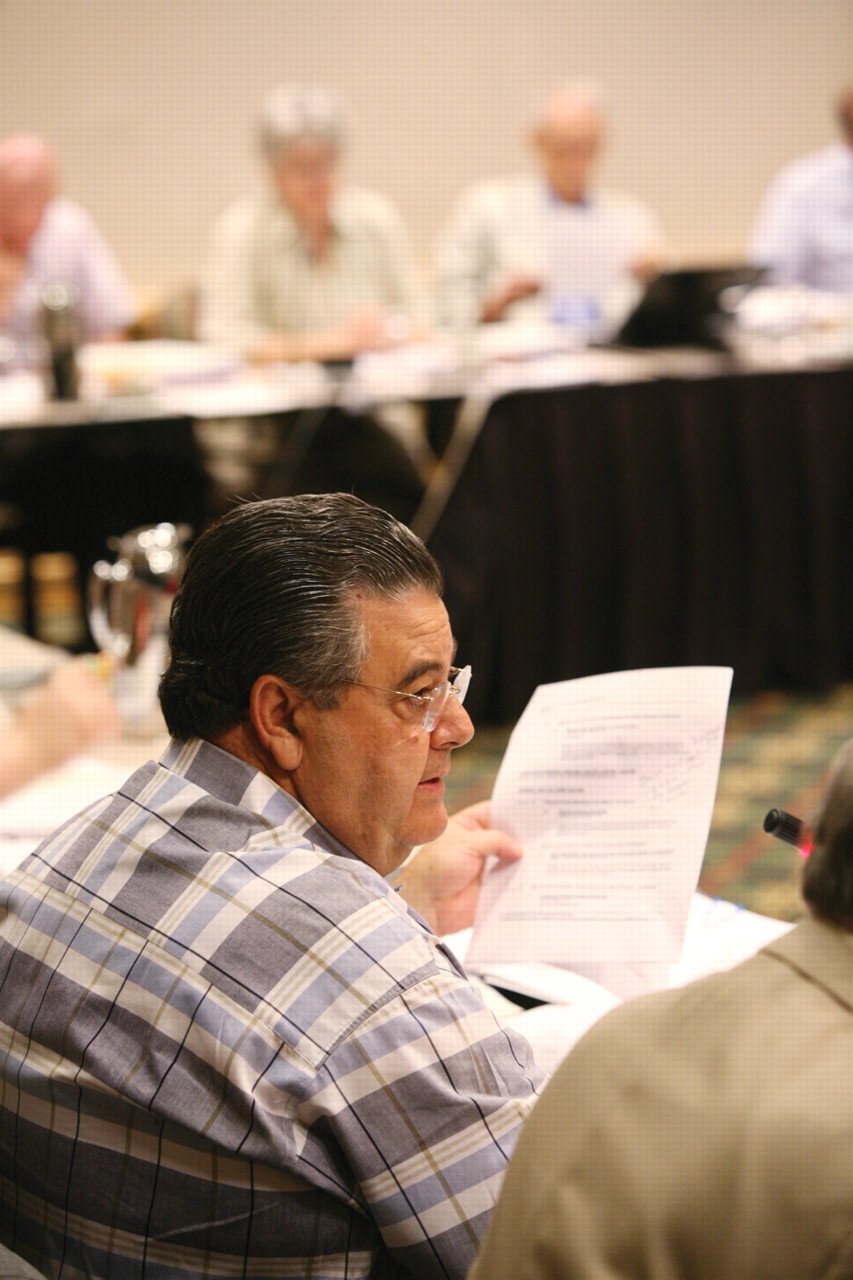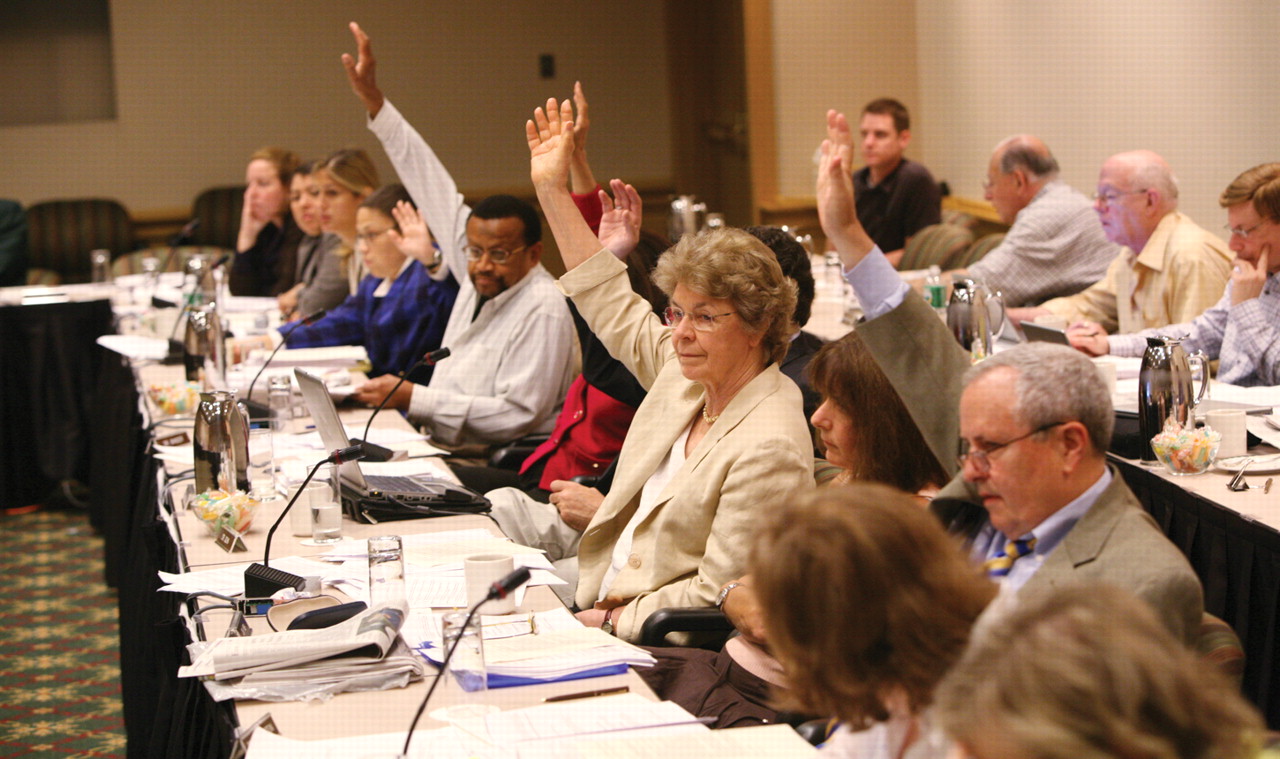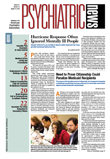APA Trustees acted on a broad range of issues at their meeting last month in Leesburg, Va., including increasing the Board's voting membership and endorsing several official APA position statements.
Responding to several proposals from the Assembly reflecting that body's desire to have more influence in the Association's policymaking process, the Board voted to proceed changing the bylaws to grant both the speaker-elect and immediate past speaker of the Assembly a vote on the APA Board of Trustees. The former proposal was passed unanimously, the latter by a 9-6 vote. The Assembly speaker has been a voting member of the Board for many years, while the speaker-elect has been an ex-officio member.
These proposals were forwarded by an ad hoc work group appointed by immediate past President Steven Sharfstein, M.D., to make recommendations on ways in which interactions between the Assembly and Board could be increased. The work group was appointed after the two governing bodies were unable to agree on ways to increase the influence of the Assembly in the Board's decision-making process.
Both actions have been forwarded to the Committee on Bylaws to develop language reflecting the Board's decision. The Board will then review the wording.
Trustees also endorsed two position statements. One was a psychotherapy-related position statement emphasizing that with psychotherapy a critical component of the psychiatric care provided to many patients, discriminatory reimbursement policies for this treatment modality must end, since they discourage the use of psychotherapy and foster split therapy.
The second position statement addresses “racism and racial discrimination and their adverse impacts on mental health.” Developed by the Committee of Black Psychiatrists and Council on Minority Mental Health and Health Disparities, the statement describes the multiple ways in which victims of racism can suffer deleterious mental health consequences from both overt and less-obvious forms of racial discrimination. It also notes that individual and institutional racism is a major contributor to the health care disparities that racial minorities face.
In other actions the Board voted to
•
Provide resident members with a free version of the annual meeting online library.
•
Maintain two committees that focus on residency issues—the Committee of Residents and Fellows and the Assembly Committee of Area Member-in-Training Representatives—as a way to maximize involvement of residents in APA, even though the committees' charges overlap.
•
Approve the creation of two components: Task Force on Complementary and Alternative Medicine Treatments for Mental Illness and Corresponding Committee on Mental Health on College and University Campuses.
•
Extend a program that had been a pilot project in which APA agreed to allow the California Psychiatric Association and North Carolina Psychiatric Association to add to APA dues notices a check-off box for voluntary contributions to their political action committees. It was determined that such contributions did not adversely impact voluntary contributions to APA's political action committee, APAPAC.
•
Approve a $5,000 contribution to preparation of an amicus curiae brief that the Maryland Psychiatric Society intends to file in the case Department of Mental Hygiene v. Kelly, which involves standards for determining dangerousness before a psychiatric patient can be involuntarily medicated. The district branch is challenging a judge's ruling that a patient must show evidence of dangerousness while in a hospital, and not in the community, before he or she can be involuntarily medicated.
•
Ask the Council on Minority Mental Health and Health Disparities and/or the Committee on Gay, Lesbian, and Bisexual Issues to develop a report for the Board “delineating the goals” that a proposed APA component should consider in recommending whether APA should prepare a resource document or position statement on gender identity disorder and its treatment.
•
Approve strategies and directions for enhancing APA's member recruitment and retention efforts proposed by the Membership Committee. The plan's focus is on “recruiting a diverse mix of members” and increasing the number of residents, early career psychiatrists, international members, and former members, in particular. It also intends to increase the involvement of district branches, training directors, department chairs, and other members in this effort.
•
Support a moratorium on the decrease in each state of the number of intermediate and long-term psychiatric hospital level-of-care bed (public and private) for children and adolescents with the state.
•
Support the National Association of Counties' resolution urging the U.S. attorney general to appoint a national commission to study and make recommendation on the jailing of the non-violent mentally ill in county jails
A summary of actions the Board took at its July meeting can be accessed in the Members Corner area of APA's Web site at<www.psych.org> under “Board of Trustees.” ▪


